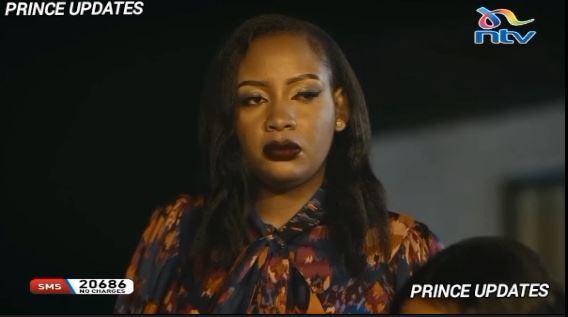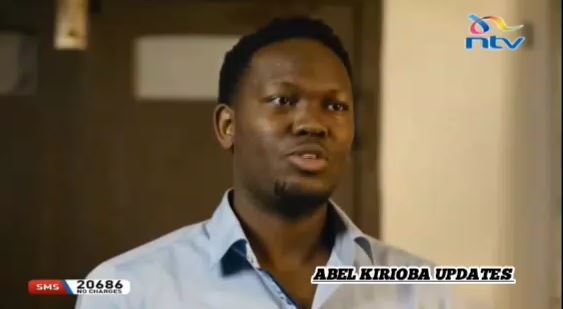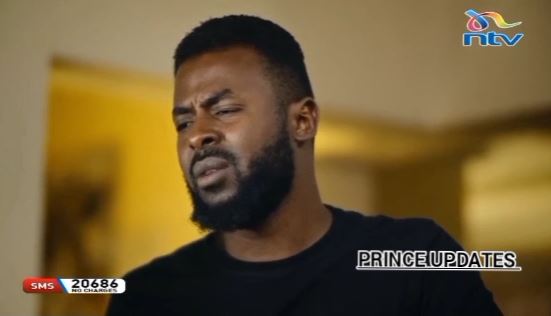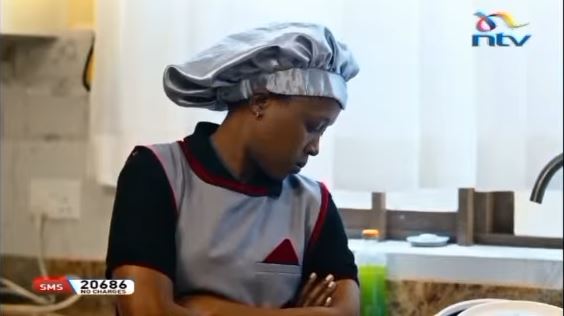Why the Sony ZV-E1 is a Great Choice for Vloggers and Content Creators
The Sony ZV-E1, a full-frame mirrorless camera launched in 2023, has solidified its position as a top pick for vloggers and content creators in 2025. Designed specifically for video-centric workflows, it packs the imaging prowess of Sony’s cinema line into a compact, lightweight body, making it ideal for solo creators on the move. Priced competitively in Kenya, the ZV-E1 offers cinematic quality without the complexity of larger rigs, appealing to YouTubers, TikTok influencers, and hybrid shooters. This article breaks down its selling points, competitors, ideal users, drawbacks, and current pricing in Kenyan Shillings.
Selling Points of the Sony ZV-E1 for Vloggers and Content Creators
- Full-Frame 12MP Exmor R Sensor
The 12MP full-frame back-illuminated sensor delivers exceptional low-light performance and dynamic range (up to 15 stops), producing stunning 4K footage with natural colors and minimal noise. This is perfect for vloggers shooting in varied lighting, from dimly lit rooms to outdoor golden hours, ensuring professional-grade video quality comparable to the Sony A7S III. - Advanced 4K Video Capabilities
The ZV-E1 records 4K at up to 120fps (with a 1.1x crop at 60fps and above) in 10-bit 4:2:2 color, supporting S-Cinetone, S-Log3, and HLG profiles for cinematic grading. Features like Focus Breathing Compensation and in-camera LUTs simplify workflows, allowing creators to achieve film-like results straight from the camera—ideal for quick turnaround on social media content. - AI-Powered Features for Vlogging
Sony’s AI processing unit enables intelligent tools like Auto Framing (which digitally pans and zooms to keep subjects centered) and Product Showcase mode (for seamless focus shifts in reviews). Real-Time Eye AF and subject tracking work flawlessly for humans, animals, and vehicles, making it effortless for solo vloggers to stay in focus while moving. - 5-Axis In-Body Image Stabilization (IBIS)
With up to 5 stops of stabilization and Active Mode for enhanced video steadiness, the ZV-E1 produces gimbal-like smooth footage handheld. This is a game-changer for vloggers filming walk-and-talks or dynamic scenes, reducing the need for additional gear and enabling creative freedom on the go. - Compact and Lightweight Design
Weighing just 483g (body only) and measuring 121 x 71.9 x 54.3mm, the ZV-E1 is one of the smallest full-frame cameras, fitting easily into a pocket or small bag. Its ergonomic grip and customizable buttons make it comfortable for extended vlogging sessions, while the weather-sealed body handles Kenya’s diverse climates, from humid coasts to dusty safaris. - High-Quality Audio Options
The camera includes a 3.5mm mic input and supports Sony’s digital audio interface for wireless mics. Built-in three-capsule directional mics with wind noise reduction ensure clear sound for outdoor vlogs, and headphone monitoring via USB-C adds pro-level audio control—essential for creators prioritizing voiceovers or interviews. - Seamless Connectivity and Battery Life
Wi-Fi, Bluetooth, and the Sony Creators’ App enable quick file transfers and remote control for social media workflows. The NP-FZ100 battery lasts up to 570 shots or 95 minutes of 4K recording, with USB-C power delivery for all-day shooting. Webcam mode supports 4K streaming, perfect for live sessions on YouTube or Twitch. - E-Mount Lens Compatibility
The ZV-E1 uses Sony’s E-mount, supporting a vast ecosystem of lenses, from compact primes like the FE 28-60mm f/4-5.6 to versatile zooms. This flexibility allows creators to adapt for wide vlogs or telephoto shots, with full-frame lenses providing cinematic depth of field.
Pricing in Kenyan Shillings
As of August 2025, the Sony ZV-E1’s price in Kenya varies by retailer and configuration, influenced by import duties. Local listings show:
- Body Only (Black): Approximately KSh 295,000–326,000
- With 28-60mm f/4-5.6 Lens: Approximately KSh 350,000–400,000
These prices are higher than global averages (around $2,200 USD for body only, or ~KSh 283,800 at 129 KSh/USD) due to taxes. Check sites like camerastoreke.co.ke, snapshot.co.ke, or digitalstore.co.ke for the latest deals and availability.
Competitors
The Sony ZV-E1 competes with other compact full-frame and APS-C cameras optimized for vlogging. Here are key rivals, with approximate Kenyan Shilling prices based on 2025 data:
- Sony A7C II
- Price: ~KSh 280,000 (body only)
- Pros: 33MP full-frame sensor, 4K/60p, EVF, dual card slots, better ergonomics.
- Cons: Bulkier, no AI auto-framing, higher price for similar video specs.
- Why Choose Over ZV-E1?: More versatile for hybrid photo/video, but the ZV-E1 is lighter and vlog-focused.
- Panasonic Lumix S5 II
- Price: ~KSh 258,000 (body only)
- Pros: 24MP full-frame sensor, 6K/30p, phase-detect AF, active cooling for unlimited recording, 7.5-stop IBIS.
- Cons: Heavier (740g), less compact, no AI vlogging tools.
- Why Choose Over ZV-E1?: Better for extended video shoots without overheating, but lacks the ZV-E1’s portability.
- Canon EOS R8
- Price: ~KSh 220,000 (body only)
- Pros: 24MP full-frame sensor, uncropped 4K/60p, Dual Pixel AF, lightweight (461g).
- Cons: Shorter battery life, no IBIS, limited RF lens ecosystem for APS-C.
- Why Choose Over ZV-E1?: Cheaper with excellent AF, but the ZV-E1’s AI features and stabilization are superior for vlogging.
- Sony A6700
- Price: ~KSh 193,500 (body only)
- Pros: APS-C 26MP sensor, 4K/120p, AI subject detection, EVF, more affordable.
- Cons: Smaller sensor limits low-light performance, no full-frame bokeh.
- Why Choose Over ZV-E1?: Better for hybrid use with stills, but the ZV-E1 excels in video quality and compactness.
Who is the Sony ZV-E1 Best For?
The Sony ZV-E1 is ideal for:
- Solo Vloggers and Influencers: Its AI tools, compact size, and flip-out screen make it perfect for creators filming themselves for YouTube, TikTok, or Instagram Reels.
- Travel Content Creators: The lightweight build and IBIS suit those shooting on the go, like in Kenya’s bustling markets or scenic safaris, without heavy gear.
- Beginner to Intermediate Videographers: User-friendly features and cinematic presets appeal to those upgrading from APS-C cameras, focusing on video over stills.
- Budget-Conscious Full-Frame Users: Priced lower than pro cinema cameras, it’s great for aspiring filmmakers wanting full-frame quality for short films or product reviews.
Drawbacks of the Sony ZV-E1
Despite its strengths, the ZV-E1 has notable limitations:
- Overheating Issues: Prolonged 4K recording, especially at higher frame rates, can cause thermal shutdowns, limiting sessions to 30–60 minutes without cooling accessories—a common complaint in long-term reviews.
- No Electronic Viewfinder (EVF): Lacking an EVF makes precise framing difficult in bright sunlight, relying solely on the low-resolution 921k-dot LCD, which washes out easily.
- Single SD Card Slot: No dual slots mean no backup for critical shoots, risking data loss—a drawback for professional creators compared to the Sony A7C II.
- Limited Ergonomics: The small body and minimal grip can feel cramped for larger hands, and there’s no joystick for quick AF adjustments, making it less comfortable for extended use.
- No Mechanical Shutter: Relies on electronic shutter only, which can cause rolling shutter distortion in fast-moving scenes or under artificial lights.
- Battery Life: While decent (up to 95 minutes of 4K), it’s shorter than competitors like the Panasonic S5 II, requiring spares for all-day shoots.
- Paid Features and Ecosystem Lock-In: Some firmware updates (e.g., for advanced LUTs) may require payment, and the E-mount ecosystem favors Sony lenses, which can be pricey.
- Lower Resolution for Stills: The 12MP sensor is video-optimized but limits still photo cropping or printing, making it less ideal for hybrid creators needing high-res photos.
Conclusion
The Sony ZV-E1 shines as a compact, full-frame vlogging powerhouse, with its AI features, 4K/120p video, IBIS, and lightweight design making it a top choice for creators prioritizing portability and cinematic quality. It’s especially suited for solo vloggers and travel influencers, delivering pro-level results for YouTube and social media. Priced at KSh 295,000–400,000 in Kenya, it offers strong value against competitors like the Sony A7C II, Panasonic Lumix S5 II, Canon EOS R8, and Sony A6700, particularly for its vlog-specific tools. However, overheating, no EVF, and single card slot may deter users needing reliability for extended or hybrid shoots—consider the Sony A7C II for better ergonomics or the Panasonic S5 II for unlimited recording.
For vloggers seeking a future-proof full-frame camera in 2025, the ZV-E1 is a compelling option. Check local retailers like camerastoreke.co.ke or snapshot.co.ke for availability, as prices can vary with promotions.
NOMA NTV WEDNESDAY 27TH JULY 2025 FULL EPISODE










You must be logged in to post a comment.